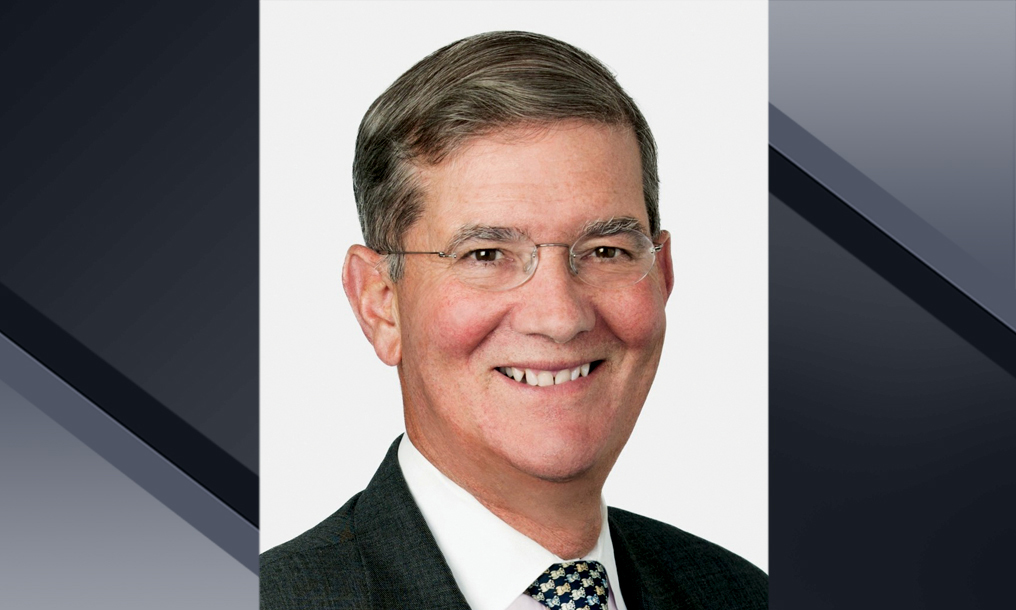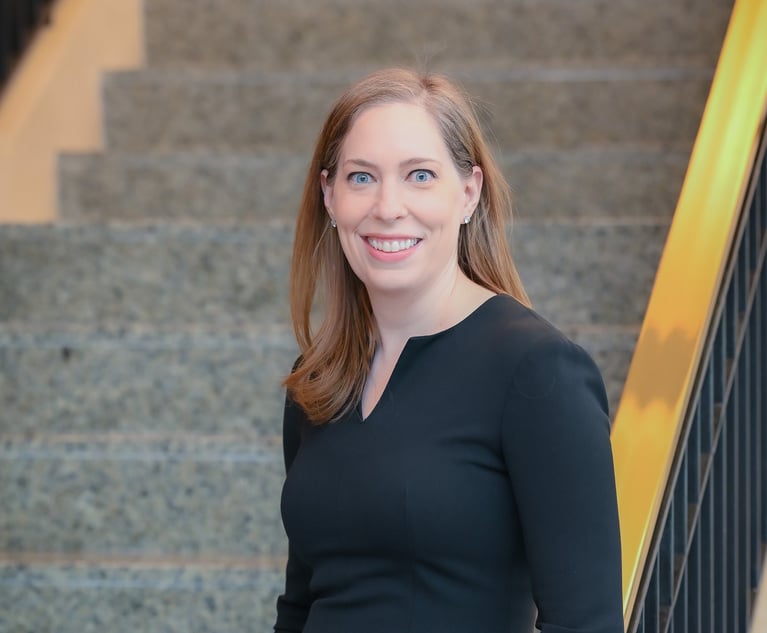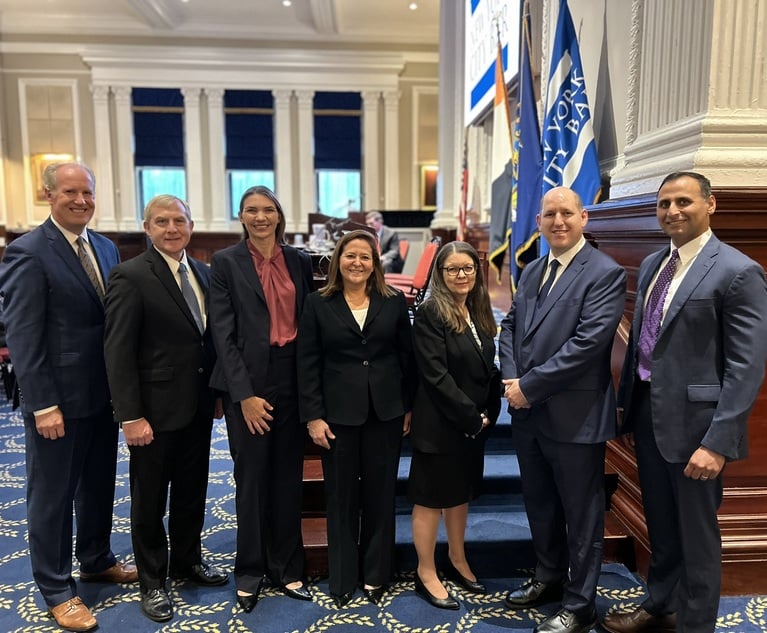Distinguished Leader: Carlos Méndez-Peñate
NY Office Managing Partner, Akerman
October 17, 2019 at 11:10 AM
4 minute read
 Carlos Méndez-Peñate, NY Office Managing Partner, Akerman
Carlos Méndez-Peñate, NY Office Managing Partner, Akerman
What are some of your proudest recent achievements? From a professional perspective, serving in my role as Akerman's office managing partner for New York and serving as the leader in recruiting, I am extremely gratified by the success in our efforts to grow Akerman's New York office from 35 lawyers to 125. We have built a balanced, diverse office in the most competitive legal market in the country featuring world-class talent who embrace the firm's collaborative culture. And our work continues. From a philanthropic perspective, I am proud of contributing to improving the lives of children in the foster care system in New York and nationally through CASA (Court Appointed Special Advocates). We make a real difference in the lives of children, which is incredibly rewarding.
What does it mean to be a leader? Being leader means having a clear vision of the future, articulating that vision, and rallying the stakeholders to not only buy in to the vision but to fully embrace it and take ownership in making it a reality. The key is clarity on the future path: You have to know where you are going for people to follow you. This applies to counseling clients as well. In many respects, they have the vision, but they need lawyers to help them chart a path to achieving it.
Name a lawyer or mentor whose leadership inspired you. I have had the privilege of working with—and learning from—some of the most talented lawyers in the business, including David Boies, Evan Chesler (current chairman of Cravath, Swaine and Moore), and Thomas Barr, a legendary partner at Cravath. Tom was a force with his combination of superior legal intellect and project management skills. This was best exemplified when he led a team I was on at the beginning of my career in the mid-1970s, of 35 lawyers in U.S. v. IBM. Tom was masterful in running a very large team in a high stakes, publicly scrutinized, complex, and fast paced litigation in which IBM ultimately prevailed. It was an inspiring demonstration of strategic vision, litigation prowess, and management expertise.
How are the business and profession of law changing, and how should lawyers adapt for the future? In important ways, law has not changed. It is still a demanding, intense profession requiring intellectual rigor and discipline. The challenge for the future lies in the appropriate use of technology, which offers tremendous efficiencies and opportunities for our profession. Artificial intelligence, blockchain, online doc services—these are great tools for lawyers. But they are just tools. To put them in proper perspective, technology adds arrows in the quiver of a lawyer, but our challenge is not to rely on them as a crutch. We must still exercise all the traditional traits of lawyers on behalf of our clients: judgment, probity, critical thinking, empathy, communication, leadership, and vision. Technology enhances our ability to advise clients, but does not supplant our role. Law will always require a real exchange between experienced lawyers who understand the facts, the precedent, the emotions, and the context to deliver results to clients.
What is the best advice for someone considering a career in law, or someone already in the profession who is seeking to make a greater impact? Law is a profession requiring an innate passion. You need an insatiable curiosity because there is much to learn—about the law, about business, about people. It is a serious commitment of time, intensity, and dedication to helping clients achieve goals—because that is, at the end of the day, the measure of success: is your client satisfied. If you do not have the proverbial "fire in the belly," this can be a tough industry. But the rewards for those who do? Law has allowed me to guide transformative transactions for my clients, to become acquainted with a diversity of people, cultures, and businesses, and it has taken me around the world. I cannot imagine doing anything else.
This content has been archived. It is available through our partners, LexisNexis® and Bloomberg Law.
To view this content, please continue to their sites.
Not a Lexis Subscriber?
Subscribe Now
Not a Bloomberg Law Subscriber?
Subscribe Now
NOT FOR REPRINT
© 2025 ALM Global, LLC, All Rights Reserved. Request academic re-use from www.copyright.com. All other uses, submit a request to [email protected]. For more information visit Asset & Logo Licensing.
You Might Like
View All
Elizabeth Cooper of Simpson Thacher on Building Teams in a 'Relationship Business'
4 minute read
For Paul Weiss, Progress Means 'Embracing the Uncomfortable Reality'
5 minute read
Kenneth Feinberg Had Dreams of Being on the Big Screen. His 9/11 Victims Fund Gave Him an Unexpected Star Turn

City Bar Holds 32nd Annual Henry L. Stimson Medal Presentation
Trending Stories
- 1SurePoint Acquires Legal Practice Management Company ZenCase
- 2Day Pitney Announces Partner Elevations
- 3The New Rules of AI: Part 2—Designing and Implementing Governance Programs
- 4Plaintiffs Attorneys Awarded $113K on $1 Judgment in Noise Ordinance Dispute
- 5As Litigation Finance Industry Matures, Links With Insurance Tighten
Who Got The Work
J. Brugh Lower of Gibbons has entered an appearance for industrial equipment supplier Devco Corporation in a pending trademark infringement lawsuit. The suit, accusing the defendant of selling knock-off Graco products, was filed Dec. 18 in New Jersey District Court by Rivkin Radler on behalf of Graco Inc. and Graco Minnesota. The case, assigned to U.S. District Judge Zahid N. Quraishi, is 3:24-cv-11294, Graco Inc. et al v. Devco Corporation.
Who Got The Work
Rebecca Maller-Stein and Kent A. Yalowitz of Arnold & Porter Kaye Scholer have entered their appearances for Hanaco Venture Capital and its executives, Lior Prosor and David Frankel, in a pending securities lawsuit. The action, filed on Dec. 24 in New York Southern District Court by Zell, Aron & Co. on behalf of Goldeneye Advisors, accuses the defendants of negligently and fraudulently managing the plaintiff's $1 million investment. The case, assigned to U.S. District Judge Vernon S. Broderick, is 1:24-cv-09918, Goldeneye Advisors, LLC v. Hanaco Venture Capital, Ltd. et al.
Who Got The Work
Attorneys from A&O Shearman has stepped in as defense counsel for Toronto-Dominion Bank and other defendants in a pending securities class action. The suit, filed Dec. 11 in New York Southern District Court by Bleichmar Fonti & Auld, accuses the defendants of concealing the bank's 'pervasive' deficiencies in regards to its compliance with the Bank Secrecy Act and the quality of its anti-money laundering controls. The case, assigned to U.S. District Judge Arun Subramanian, is 1:24-cv-09445, Gonzalez v. The Toronto-Dominion Bank et al.
Who Got The Work
Crown Castle International, a Pennsylvania company providing shared communications infrastructure, has turned to Luke D. Wolf of Gordon Rees Scully Mansukhani to fend off a pending breach-of-contract lawsuit. The court action, filed Nov. 25 in Michigan Eastern District Court by Hooper Hathaway PC on behalf of The Town Residences LLC, accuses Crown Castle of failing to transfer approximately $30,000 in utility payments from T-Mobile in breach of a roof-top lease and assignment agreement. The case, assigned to U.S. District Judge Susan K. Declercq, is 2:24-cv-13131, The Town Residences LLC v. T-Mobile US, Inc. et al.
Who Got The Work
Wilfred P. Coronato and Daniel M. Schwartz of McCarter & English have stepped in as defense counsel to Electrolux Home Products Inc. in a pending product liability lawsuit. The court action, filed Nov. 26 in New York Eastern District Court by Poulos Lopiccolo PC and Nagel Rice LLP on behalf of David Stern, alleges that the defendant's refrigerators’ drawers and shelving repeatedly break and fall apart within months after purchase. The case, assigned to U.S. District Judge Joan M. Azrack, is 2:24-cv-08204, Stern v. Electrolux Home Products, Inc.
Featured Firms
Law Offices of Gary Martin Hays & Associates, P.C.
(470) 294-1674
Law Offices of Mark E. Salomone
(857) 444-6468
Smith & Hassler
(713) 739-1250






